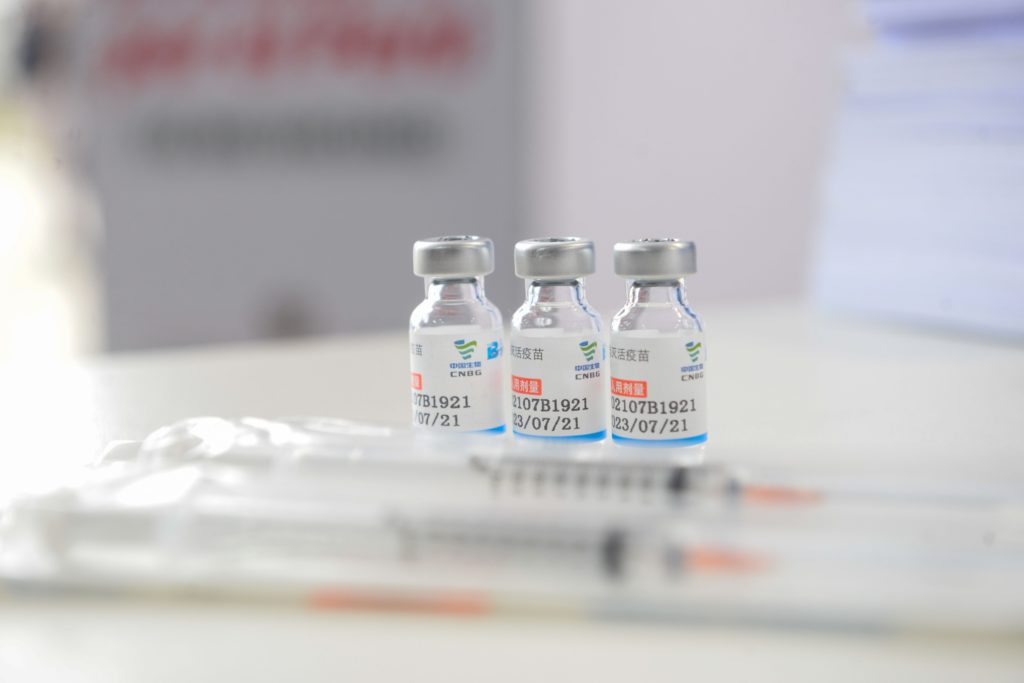(Bloomberg) — Covid-19 shots made by China’s state-owned Sinopharm and Johnson & Johnson, as well as the Sputnik vaccine developed by Russia, were found to produce little or no antibodies against omicron in a study, as evidence of the new variant’s vaccine-evading abilities mount.
Researchers at the University of Washington and Swiss drugmaker Humabs Biomed SA analyzed the efficacy of six vaccines against the highly-infectious and most-mutated Covid variant. Only three out of 13 people who has taken both doses of Sinopharm’s shot showed neutralizing antibodies against omicron. For J&J, this metric dropped to one out of 12 samples. None of the 11 people fully vaccinated with Sputnik generated such antibodies.
The study, which has been published as a pre-print and is yet to be peer-reviewed, also found that the lowest reduction in protective antibodies come from a combination of prior infection and two doses of Pfizer Inc.’s mRNA shots. Antibody levels in this sub-set of people dropped five-fold, compared to 44-fold for those who took both the shots from Pfizer but didn’t have a history of Covid infection.
Emerging research that some of the most widely-used vaccines provide only a partial shield against omicron is making anxious governments impose travel curbs and accelerate booster shot campaigns in a bid to avert further virus waves and economy-gutting lockdowns. The new variant, which infects 70 times faster than the deadly delta, has rapidly spread to some 77 countries in less than one month of being first detected in southern Africa.
The latest study found that people vaccinated with two doses of the Pfizer-BioNTech and Moderna Inc. shots also generated fewer antibodies. So did those with the viral vector vaccine developed by the University of Oxford and AstraZeneca Plc — a finding consistent with other studies that there’s marked loss of protection.
Improve Protection
Studies earlier this week showed that Sinovac Biotech Ltd.’s vaccine — one of the most widely used in the world along with the Pfizer-BioNTech shot — also didn’t provide sufficient antibodies after two doses against omicron and boosters will likely be needed to improve protection.
This has left scientists and public health authorities scrambling for ways to raise protection against the new variant, including bringing forward third doses to just three months after the second, mixing and matching different vaccines and developing a new generation of omicron-targeted shots.
Still, studies probing antibody levels are looking at just one arm of the immune response that protect people from infection. The other arm of the immune response is cell mediated immunity — known as T-cell response — which can protect people from serious illness and death. Research is still ongoing on how T-cells respond to omicron.











